Sneezing is a common behavior in dogs, but when it becomes frequent or persistent, it can be a source of concern for pet owners. While occasional sneezing might be harmless, understanding the underlying causes of excessive sneezing is crucial for ensuring your dog’s well-being. This article delves into the various reasons why your dog may be sneezing a lot, from environmental irritants and allergies to infections and dental issues.
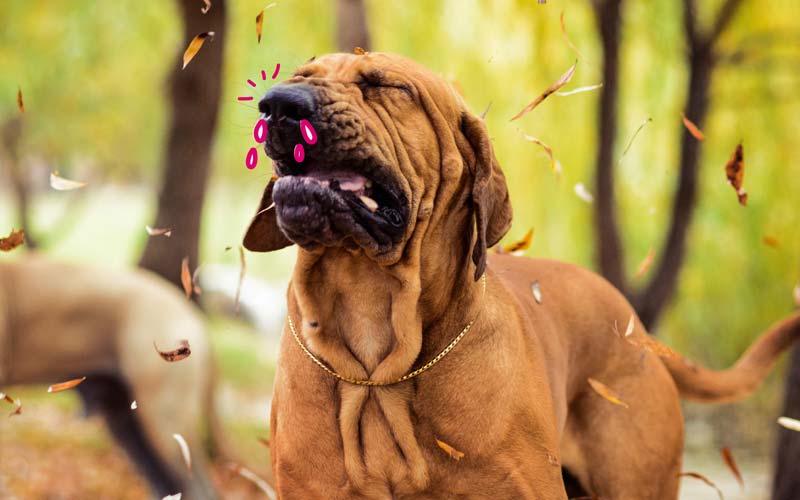
By exploring these causes, recognizing warning signs, and implementing effective prevention and treatment strategies, you can better address your dog’s sneezing and maintain their overall health. Whether you’re a concerned pet owner or a new dog guardian, this comprehensive guide will help you navigate the complexities of canine sneezing and provide actionable steps to ensure your furry friend remains happy and healthy.
1. Common Causes of Sneezing in Dogs
Environmental Irritants
Dust, pollen, and household cleaners are common triggers for sneezing in dogs. These irritants can get trapped in a dog’s nasal passages, causing the body to respond by sneezing to clear them out. Dogs are naturally curious and often sniff around, making them more prone to inhaling these particles. Household products like air fresheners, cleaning sprays, or even perfumes can also be culprits. Limiting exposure to these irritants by maintaining a clean environment and using pet-safe products can help reduce sneezing.
Allergies in Dogs
Dogs, like humans, can develop allergies to a variety of substances, including pollen, mold, or even certain food ingredients. Sneezing is one of the most common signs of allergies, often accompanied by itching, watery eyes, or skin irritation. Seasonal allergies are particularly common, especially during spring and fall when pollen counts are high. In such cases, sneezing may become more frequent, signaling that it’s time to consult a vet for potential allergy testing or treatment.
Nasal Blockages
Foreign objects such as grass, dirt, or small seeds can become lodged in a dog’s nose, leading to sudden sneezing fits. Dogs that love to explore grassy areas or dig in the dirt are especially susceptible. If your dog is sneezing repeatedly and seems to be pawing at its nose, it may have something stuck in its nasal passage. You can try gently inspecting the nose, but if the sneezing persists, it’s best to have a veterinarian remove the object to avoid any complications.
Infections (Bacterial, Viral, or Fungal)
Respiratory infections are a common cause of sneezing in dogs. These infections, which can be bacterial, viral, or fungal, often come with additional symptoms such as coughing, nasal discharge, or lethargy. Kennel cough and canine influenza are two well-known infections that can cause frequent sneezing. If your dog is showing signs of an infection, prompt veterinary care is essential to prevent it from worsening.
Dental Issues
Gum infections or dental abscesses can irritate a dog’s nasal cavities and lead to sneezing. Since the roots of a dog’s teeth are close to their nasal passages, any infection in the mouth can easily affect the nose. Dogs with dental issues may also have bad breath, difficulty chewing, or swollen gums. Regular dental checkups and cleanings can help prevent this from becoming a problem.
Excitement and Play-Induced Sneezing
Some dogs sneeze when they are excited or engaged in play. This is known as “play sneezing,” and it’s usually harmless. The sneezing helps communicate that they’re having fun and not being aggressive. It’s a common behavior and nothing to worry about unless the sneezing becomes excessive.
Reverse Sneezing
Reverse sneezing is another phenomenon that can be mistaken for a more serious issue. It occurs when a dog rapidly inhales air through its nose, making a snorting sound. This can happen due to irritants, excitement, or after eating. While it can look alarming, reverse sneezing is generally harmless and resolves on its own. However, if it happens frequently or for extended periods, a vet check might be necessary to rule out any underlying issues.
This section helps readers understand the variety of factors that could be causing their dog’s sneezing and sets the foundation for knowing when to take action.
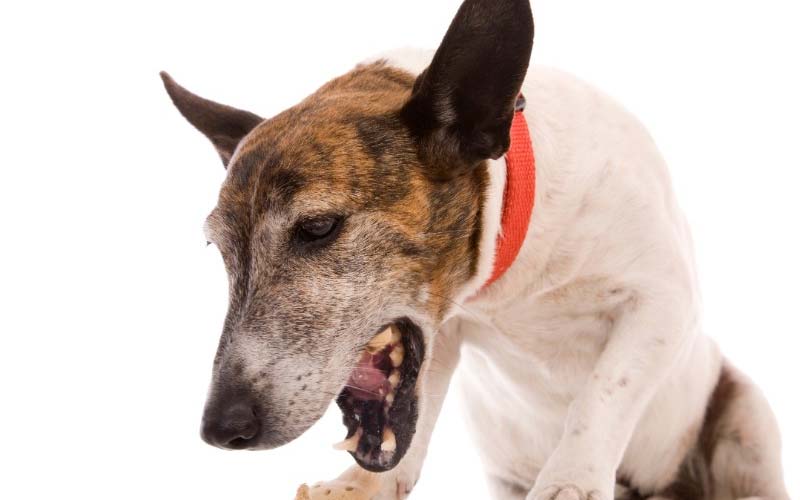
2: Recognizing When Sneezing Is Serious
Warning Signs That Require Vet Attention
While sneezing is common in dogs, certain signs suggest that it could be more than a simple irritation. If your dog’s sneezing is persistent and doesn’t seem to resolve on its own, it may be time to consult a veterinarian. Additionally, sneezing accompanied by blood or unusual nasal discharge—such as thick mucus or a greenish color—can indicate more serious conditions like infections or even nasal tumors.
Other symptoms to watch for include lethargy, fever, and loss of appetite. These are clear indications that your dog’s body is fighting something more significant than a minor irritant. Dogs that are normally active but suddenly seem tired or unwilling to eat should be seen by a vet, as these could be signs of an underlying illness.
How to Observe and Track Symptoms
To help identify the cause of your dog’s sneezing, it’s important to track the episodes. Keep a log of when your dog sneezes, including the time of day, location, and any environmental factors that may be present (e.g., dust, pollen, or cleaning products). Noticing patterns can help determine whether the sneezing is linked to specific irritants or activities. For example, sneezing only during walks could point to outdoor allergens, while sneezing after meals might suggest food-related issues.
By documenting symptoms, you can provide your vet with detailed information that could speed up diagnosis and treatment. Keeping track of other signs like nasal discharge, changes in behavior, or energy levels will also help the vet assess whether the sneezing is part of a larger health problem.
Vet Consultation
If your dog’s sneezing continues despite eliminating potential environmental causes, it’s time to schedule a vet visit. During the examination, your vet will ask about your dog’s sneezing history and any other symptoms you’ve observed. Be prepared to share your notes on frequency, duration, and possible triggers.
The vet may perform a physical examination and use diagnostic tools like nasal swabs to check for infections or irritants. If allergies are suspected, allergy tests can help pinpoint the specific cause. In some cases, the vet may recommend X-rays or even a rhinoscopy (a procedure to look inside the nasal passages) to check for more serious issues like tumors or blockages.
By recognizing the signs that sneezing may be serious and taking early action, you can ensure your dog gets the proper care and treatment it needs.
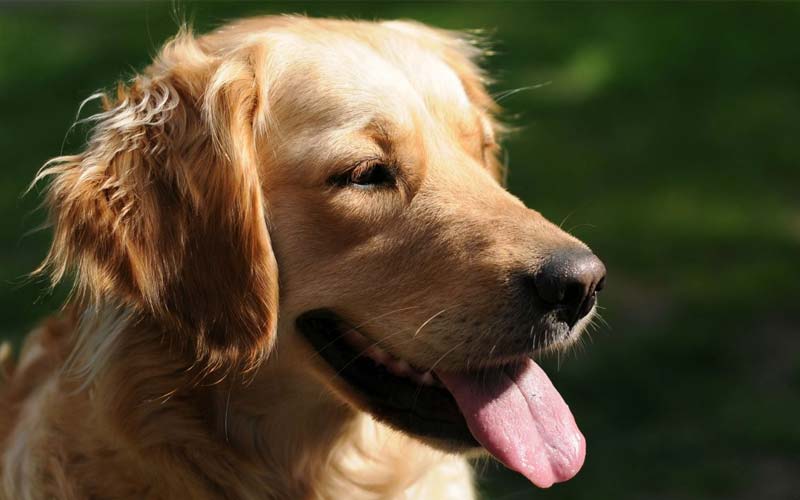
3. Prevention and Treatment Options
Minimizing Environmental Irritants
To prevent sneezing caused by irritants, it’s important to maintain a clean and pet-friendly environment. Regularly clean your home to reduce dust, pollen, and other particles that may trigger sneezing. Using air purifiers with HEPA filters can help trap airborne allergens and keep the air clean for your dog. Additionally, be mindful of the cleaning products you use. Opt for pet-safe cleaners that avoid harsh chemicals, which can irritate your dog’s nasal passages and contribute to sneezing.
Addressing Allergies
If your dog’s sneezing seems to be triggered by allergens, it may be time to consider allergy testing. Vets can perform tests to determine if your dog has sensitivities to common allergens like pollen, mold, or food ingredients. Once the allergens are identified, your vet may suggest a range of treatment options, including antihistamines or other medications to manage symptoms. In some cases, adjusting your dog’s diet or creating an allergy management plan can help reduce the frequency of sneezing. Specialized allergy treatments like immunotherapy may also be recommended for dogs with severe reactions.
Home Care for Nasal Blockages
If you suspect your dog is sneezing due to a foreign object lodged in its nose, there are safe techniques to check at home. You can gently inspect your dog’s nose for visible blockages like grass or dirt. If you spot something, try to carefully remove it with tweezers or a soft cloth. However, if the object is deep or your dog continues sneezing, it’s best to leave removal to a vet to avoid causing further injury.
Treating Infections and Dental Issues
Prompt veterinary care is crucial if sneezing is caused by an infection or dental problem. Respiratory infections often require antibiotics or antifungal medications to clear up the underlying cause. Likewise, dental issues like gum infections or abscesses can lead to sneezing by irritating the nasal cavities. Your vet may recommend dental procedures to resolve these issues and prevent future problems. Early intervention not only helps your dog feel better but also avoids complications from untreated infections.
Managing Reverse Sneezing
Reverse sneezing can be unsettling, but it’s usually harmless. If your dog experiences an episode, you can calm them by gently massaging their throat or covering their nose briefly to encourage them to swallow. This helps stop the reverse sneezing reflex. If episodes are frequent or prolonged, consult your vet to rule out underlying causes like nasal irritants or infections. While reverse sneezing is often a benign condition, vet attention may be necessary if it becomes chronic or severe.
By implementing these prevention and treatment strategies, you can minimize your dog’s sneezing and ensure it stays healthy and comfortable.
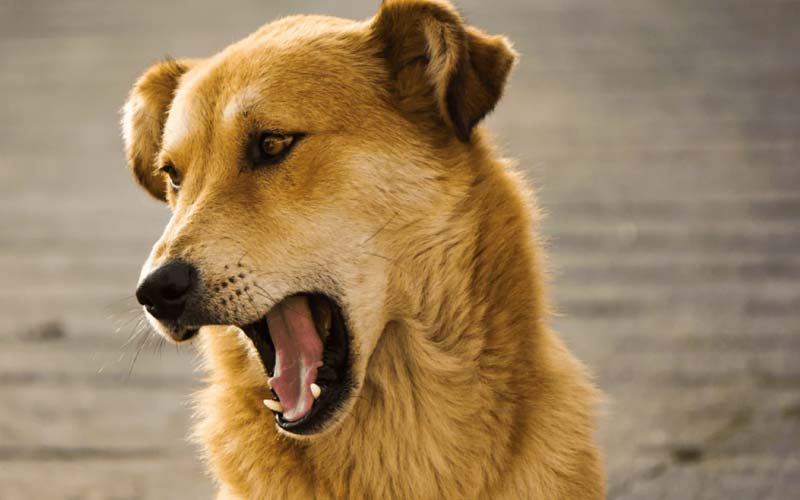
4. Long-Term Health Considerations
The Importance of Regular Vet Checkups
Routine veterinary checkups are key to maintaining your dog’s overall health and catching potential problems early. During these visits, vets can monitor for underlying issues like respiratory infections, allergies, or nasal blockages that may contribute to sneezing. Regular checkups also allow for preventive care, such as vaccinations and parasite control, which reduce the risk of illnesses that may cause sneezing.
Dental care is another crucial aspect of your dog’s health. Since dental infections can lead to nasal irritation and sneezing, maintaining good oral hygiene with regular dental exams and cleanings helps prevent such issues from developing.
Nutritional Support
A balanced, nutritious diet plays a vital role in strengthening your dog’s immune system and preventing frequent sneezing. Nutrient-rich food helps your dog fight off infections and allergies more effectively. In some cases, switching to a specialized diet can address food-related allergies, one of the common causes of sneezing. Consult with your vet to ensure your dog is receiving the proper nutrition to support long-term health and reduce potential triggers.
Staying Alert to Changes in Behavior
Pay close attention to your dog’s sneezing patterns and overall behavior. Sudden changes—such as more frequent or intense sneezing—could signal new health concerns that require prompt attention. Watch for other signs like coughing, lethargy, or appetite changes, which might indicate that the sneezing is linked to a more serious condition. Staying proactive and noticing these shifts early can make a significant difference in catching health problems before they escalate.
By focusing on regular checkups, nutrition, and behavioral awareness, you can support your dog’s long-term health and minimize sneezing issues over time.
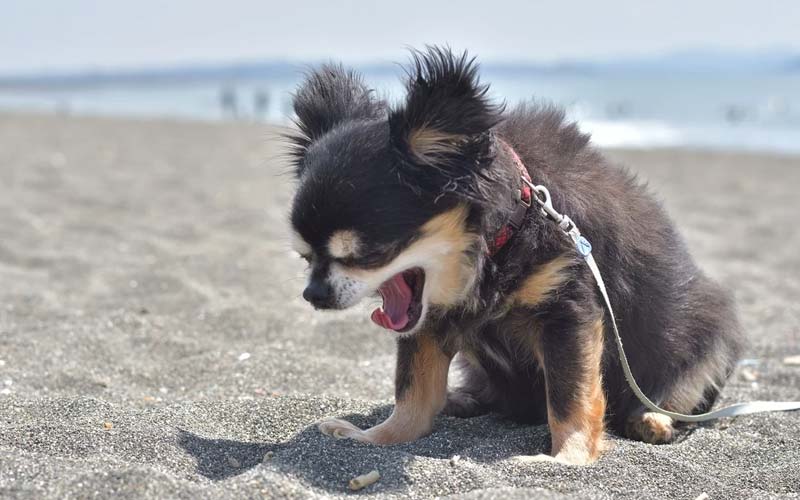
Conclusion
Understanding why your dog is sneezing frequently is crucial for ensuring their health and comfort. From environmental irritants and allergies to infections and dental issues, there are various factors that can contribute to a dog’s sneezing. Recognizing when sneezing is a sign of a more serious problem is equally important, and timely veterinary consultation can make a significant difference in your dog’s well-being.
To address and prevent sneezing, focus on minimizing environmental irritants, managing allergies, and maintaining good oral health. Tracking your dog’s sneezing patterns and being vigilant about any changes in their behavior can help you catch potential health issues early.
By staying proactive with regular vet checkups, providing a balanced diet, and addressing any emerging symptoms, you can help ensure your dog remains healthy and happy. If you notice persistent sneezing or other concerning signs, don’t hesitate to seek veterinary advice. Your vigilance and care are key to keeping your furry friend in optimal health.